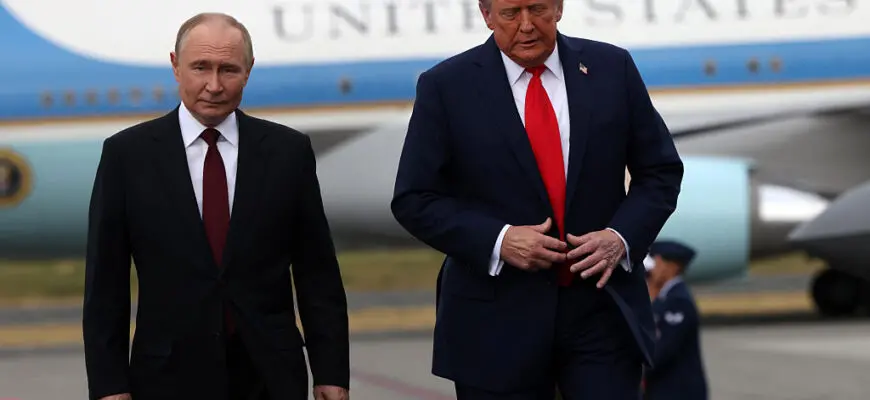President Donald Trump rebuked Russia’s recent test of a nuclear-powered missile with an 8,000-mile range, telling President Vladimir Putin that he should focus instead on ending the war in Ukraine.
Speaking to reporters on Air Force One during a visit to Japan, Trump was asked if he viewed the missile test as “saber-rattling.” He quickly dismissed the threat, stressing the superiority of the US nuclear arsenal.
“They know we have a nuclear submarine, the greatest in the world, right off their shore. So it doesn’t have to go 8,000 miles. They’re not playing games with us, we’re not playing games with them either,” Trump said. “We test missiles all the time… we don’t need to go 8,000 miles. And I don’t think it’s an appropriate thing for Putin to be saying, by the way.”
Addressing the Russian President directly, Trump demanded that he prioritize peace.
“You ought to get the war ended,” Trump said, seemingly addressing the Russian President directly. “The war that should have taken one week is now in its soon fourth year. That’s what you ought to do, instead of testing missiles.”
Trump’s remarks followed details provided by Putin regarding the Burevestnik nuclear-powered missile test, which was conducted on October 21. Putin claimed the weapon has an “unlimited” range and is a “unique weapon that no other country possesses.”
Army Chief Valery Gerasimov reported that the missile was airborne for 15 hours, traveling up to 14,000 km (8,700 miles), and demonstrated a “high capability to evade missile-defence and air-defence systems.” Gerasimov added that Yars and Sineva intercontinental ballistic missiles, along with two Kh-102 air-launched cruise missiles, were also tested as part of Russia’s strategic nuclear force training.
Despite the tests, Kremlin spokesperson Dmitry Peskov reportedly told Russian state news TASS that the exercises should not further strain relations between the two countries, adding that relations are “already at a minimum.”
The relationship between Washington and Moscow is increasingly strained, particularly after the US announced significant sanctions the previous week, targeting Russia’s two main oil firms and their subsidiaries.
Treasury Secretary Scott Bessent stated that the actions “increase pressure on Russia’s energy sector and degrade the Kremlin’s ability to raise revenue for its war machine and support its weakened economy.” Russian Foreign Ministry Spokesperson Maria Zakharova referred to the sanctions as “counterproductive,” insisting Russia has “developed strong immunity to Western restrictions.”
When asked if the U.S. might impose further restrictions, Trump said: “You’ll find out.”
The European Union followed the U.S. sanctions last week with its own elevated package—the 19th of its kind—imposing measures against Russia’s energy, military, and financial sectors, as well as targeting individuals believed to be involved in the abduction of Ukrainian children.
Regarding Ukraine funding, Trump deflected a question about whether the E.U. should allow the use of frozen Russian central bank assets for Ukraine’s defense efforts, replying: “You’d have to ask the E.U. I’m not involved in that.” European leaders agreed on Friday to hold off on using the assets for now, with the issue set for discussion again in December.
A planned meeting between Trump and Putin in Budapest, Hungary, scheduled after an hours-long phone call on October 16, has since been postponed indefinitely. Trump explained that “It didn’t feel right to me, I didn’t feel like we were going to get to the place we have to get.” Their first in-person meeting since 2019 occurred in August at a summit in Alaska, which ended earlier than expected without a deal.









